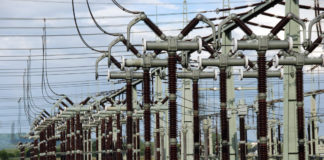Nvidia has created an an AI agent that can clean ‘noisy images’ – without ever having seen a ‘clean’ one. Working alongside AI researchers from MIT and Aalto University, they have created something they’ve called ‘Noise2Noise’. The team’s findings could, they claim, “lead to new capabilities in learned signal recovery using deep neural networks.” This could have a big impact on a number of areas, including healthcare.
How researchers trained the Noise2Noise AI agent
The team took 50,000 images from the ImageNet database which were then manipulated to look ‘noisy’. Noise2Noise then ran on these images and was able to ‘denoise’ them – without knowing what a clean image looked like.
This is the most significant part of the research. The AI agent wan’t learning from clean data, but was instead simply learning the denoising process. This is an emerging and exciting area in data analysis and machine learning.
In the introduction to their recently published journal article, which coincides with a presentation at International Conference on Machine Learning in Stockholm this week the research team explain:
“Signal reconstruction from corrupted or incomplete measurements is an important subfield of statistical data analysis. Recent advances in deep neural networks have sparked significant interest in avoiding the traditional, explicit a priori statistical modeling of signal corruptions, and instead learning to map corrupted observations to the unobserved clean versions.”
The impact and potential applications of Noise2Noise
Because the Noise2Noise AI agent doesn’t require ‘clean data’ – or the ‘a priori statistical modeling of signal corruptions’ – it could be applied in a number of very exciting ways. It “points the way significant benefits in many applications by removing the need for potentially strenuous collection of clean data” the team argue.
One of the most interesting potential applications of the research is in the field of MRI scans. Essentially, an agent like Noise2Noise could give a much more accurate MRI scan than those done by traditional MRI scan agents which use something called Fast Fourier Transform. This could subsequently lead to a greater level of detail in MRI scans which will massively support medical professionals to make quicker diagnoses.
Read next:
Nvidia GPUs offer Kubernetes for accelerated deployments of Artificial Intelligence workloads
Nvidia’s Volta Tensor Core GPU hits performance milestones. But is it the best?










![How to create sales analysis app in Qlik Sense using DAR method [Tutorial] Financial and Technical Data Analysis Graph Showing Search Findings](https://hub.packtpub.com/wp-content/uploads/2018/08/iStock-877278574-218x150.jpg)





